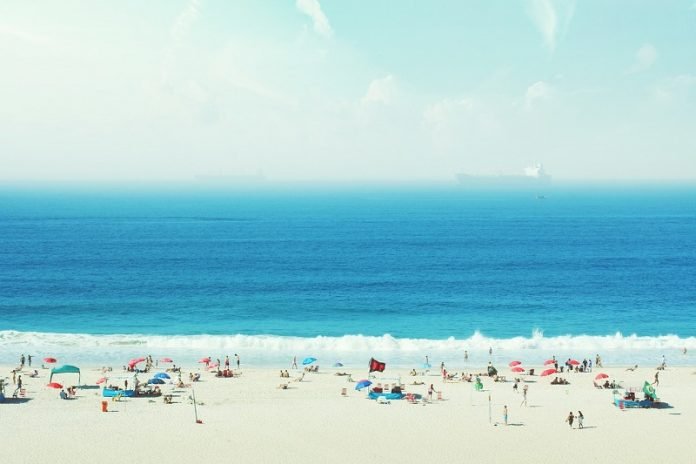
With much of the nation facing a heat advisory this weekend, the American Heart Association, the world’s leading nonprofit organization focused on heart and brain health for all, is urging people to take precautions to protect their hearts.
Hot temperatures and high humidity can cause a dangerous heat index that can be hard on the heart.
Dehydration causes the heart to work harder, putting it at risk.
Hydration helps the heart more easily pump blood through the blood vessels to the muscles.
And, it helps the muscles work efficiently.
“If you’re a heart patient, older than 50 or overweight, you might need to take special precautions in the heat,” according to Robert A. Harrington, M.D., FAHA, president of the American Heart Association.
“Certain heart medications like angiotensin receptor blockers (ARBs), angiotensin-converting enzyme (ACE) inhibitors, beta blockers, calcium channel blockers and diuretics, which deplete the body of sodium, can exaggerate the body’s response to heat and cause you to feel ill in extreme heat,” said Harrington.
But Harrington points out that it’s important to keep taking your medications —and taking them when you’re supposed to. Talk to your doctor about any concerns.
Even people who are not on medications need to take precautions in the heat. While infants and the elderly are more vulnerable to problems from heat, extreme temperatures can cause health issues for anyone.
“It is easy to get dehydrated as you may not be aware that you’re thirsty,” Harrington said.
“If you’re going to be outside, it’s important to drink water even if you don’t think you need it. Drink water before, during and after going outside in hot weather.”
The American Heart Association suggests that everyone take hot weather precautions:
Watch the clock: It’s best to avoid the outdoors in the early afternoon (about noon to 3 p.m.) because the sun is usually at its strongest, putting you at higher risk for heat-related illnesses.
Get off on the right foot: You probably sweat the most in your shoes, so choose well-ventilated shoes and look for socks that repel perspiration.
Foot powders and antiperspirants can also help with sweat.
Dress for the heat: Wear lightweight, light-colored clothing in breathable fabrics such as cotton, or a newer fabric that repels sweat.
Add a hat and sunglasses. Before you get started, apply a water-resistant sunscreen with at least SPF 15, and reapply it every two hours.
Drink up: Stay hydrated by drinking a few cups of water before, during and after your exercise. Avoid caffeinated or alcoholic beverages.
Take regular breaks: Find some shade or a cool place, stop for a few minutes, hydrate and start again
Follow the doctor’s orders: Continue to take all medications as prescribed.
If you are a heart patient, over the age of 50, overweight or just starting an exercise program, be sure to check with your doctor for your best exercise routine.
It’s important to know the signs and symptoms when you may be experiencing too much heat.
Symptoms of heat exhaustion:
headaches
heavy sweating
cold, moist skin, chills
dizziness or fainting (syncope)
a weak and rapid pulse
muscle cramps
fast, shallow breathing
nausea, vomiting or both
If you experience these symptoms, move to a cooler place, stop exercising and cool down immediately by dousing yourself with cold water and re-hydrating. You may need to seek medical attention.
Symptoms of heat stroke:
warm, dry skin with no sweating
strong and rapid pulse
confusion and/or unconsciousness
high fever
throbbing headaches
nausea, vomiting or both
If you experience these symptoms, seek medical attention right away. Heat stroke is not the same as a stroke.
Stroke happens when a blood vessel to the brain either bursts or is blocked by a clot, causing a decrease in oxygen flow to the brain.



